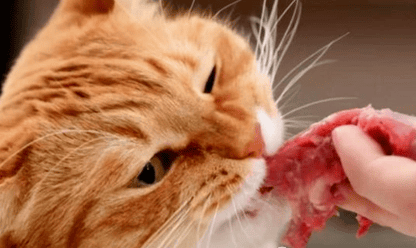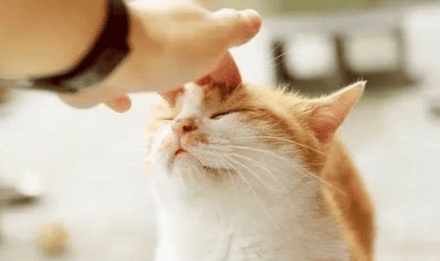Cats, dogs and humans all need five major nutrients: protein, fat, carbohydrates, vitamins and minerals. However, because cats are carnivores, their digestion and nutritional needs are slightly different from dogs and humans.

Most cat lovers As we all know, cats are typical carnivores, and their bodies mainly rely on digesting protein and fat as energy sources, although they can also consume small amounts of carbohydrates.
This special eating habit comes from the fact that cats’ ancestors made a living by hunting small animals in harsh environments, and gradually evolved physiological characteristics to adapt to eating meat. But why can cats consume large amounts of protein without suffering from diseases such as hyperammonemia? Let’s take a closer look at your cat’s unique metabolism and nutritional needs!
In a cat’s diet, the proportion of basic nutrients is: protein is about 55%, fat is 25% to 45%, and carbohydrate is 9% to 12%. The proportion will vary depending on the cat’s living environment. Slight differences (such as differences between domestic cats and wild cats)
Because cats are carnivores, they have some unique metabolic characteristics and nutritional needs:
Cats lack amylase in their mouths: This means they cannot digest large amounts of carbohydrates efficiently. Cats’ digestive systems are better suited to digesting proteins and fats.
Small stomach capacity: Compared with other animals, cats have smaller stomach capacities and cannot store large amounts of food like dogs. Therefore, they are suitable for eating in small, frequent meals.
Protein metabolism: A cat’s body can convert large amounts of protein ingested into glucose as an energy source. This property allows cats to meet their energy needs by digesting and utilizing protein.
Essential amino acids: Cats need certain essential amino acids, such as arginine and taurine, from their food. Lack of these amino acids can lead to serious health problems such as hyperammonemia, heart disease, etc.
Vitamin requirements: Cats cannot synthesize vitamin A and niacin by themselves, so they need to obtain them from food. These vitamins are important for your cat’s growth and immune function.
Protein
Cat’s need for protein is extremely important, because protein not only provides energy, but also participates in body metabolism and synthesis, such as the synthesis of cells, muscles and hair, and the operation of hormones. Protein is composed of a variety of amino acids. Those that the body can synthesize by itself are called non-essential amino acids, while those that cannot be synthesized by the body are called essential amino acids.
Cats can obtain abundant essential amino acids (such as arginine, taurine) by ingesting fresh whole meat foods, so cats who eat meat with every meal usually do not suffer from insufficient protein intake. . One of the physical characteristics of cats is their ability to continuously digest and absorb protein. Its rapid processing system not only converts dietary protein into energy, but also prevents the occurrence of hyperammonemia, which is why cats have a high demand for protein.
On the contrary, if the cat consumes too little protein resulting in a deficiency of essential amino acids, serious diseases will occur. For example, a meal without arginine-containing foods may lead to hyperammonemia, which may even be life-threatening in severe cases; a lack of taurine may lead to heart disease, retinopathy, and reproductive system diseases. Therefore, ensuring your cat gets enough protein is crucial to their health.

Fat
Cats can digest high-fat foods without suffering physical discomfort, whereas in humans, eating too much fat can lead to obesity and gastrointestinal problems. The fat content in a cat's diet is usually 25% to 45%, so fat has the following functions for the cat's body:
Convert excess energy into fat storage, which can be broken down and used when the body needs energy.
Each gram of fat provides twice as many calories as protein and carbohydrates.
Provides essential fatty acids that the body cannot synthesize on its own.
Increase the flavor of food and improve its taste and appeal.
Promote the absorption of fat-soluble vitamins.
Excess fat can be stored under the skin or around internal organs, protecting the organs and insulating against heat.
Therefore, fat is vital to a cat’s body functions, providing energy, essential fatty acids, and protection to keep the cat’s body healthy and functioning properly.

 扫一扫微信交流
扫一扫微信交流
发布评论